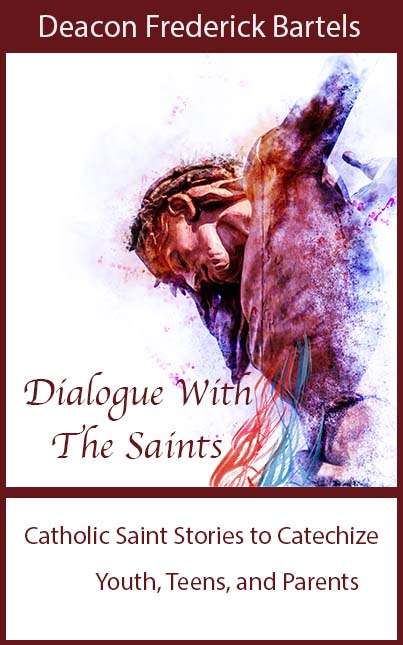
The sacrament of confession and the question of authority. These are often points of contention people raise against the Church. For me, it was these very things that led me into the womb of the Church.
By Luke Tako
10 March 2020
I was raised loosely Lutheran—more to keep me in line than to lead me to Heaven. After getting into too much trouble in third grade, I was sent to a Missouri Synod Lutheran school from fourth to eighth grade. That planted seeds which later proved to be a saving grace, but it also made me vehemently anti-Catholic. As one of my good friends can attest, I used to use the word Catholic almost as an expletive.
My Lutheran school only went to eighth grade, so in ninth grade, it was back to public school and back to a worldly lifestyle. In my mid-twenties, a loving Christian aunt who was raised Catholic but had left the Church, took me to a Billy Graham Crusade, despite my reluctance. The story of the Prodigal Son, the theme of the Crusade that night, led me to an altar call and a changed life.
Despite my rediscovered faith in Christ, there remained certain things that bothered me. Many New Testament Scripture verses conflicted with the Lutheran doctrine of sola fide (saved by faith alone), and if it took more than just faith to be saved, how could I know my sins were truly forgiven? I was told that I just need to confess my sins to God and I would be forgiven, but I wanted to know I was forgiven. I remember watching the movie Jesus of Nazareth and almost being moved to tears during the scene when Jesus places his hands on Mary Magdalene’s face and says, “My daughter, your sins, and I know they are many, are forgiven, because of the greatness of your love.” I longed so much for that kind of experience. God had become a human man, and his human presence must have been such a great comfort to those who heard his words of compassion and forgiveness. Why couldn’t I hear those words also? Hearing myself say, “Forgive me, Lord” just didn’t have the same effect.
Compounding my uncertainty was the numerous interpretations of Scripture that I encountered. My aunt, whom I mentioned above, went to one particular Fundamentalist church and her son another. I listened to them argue about many things including baptism. My cousin thought his mother was going to hell because of her supposedly incorrect intentions for getting re-baptized, and she disagreed with him on other points of doctrine. But one thing they had in common was their dislike for the Catholic Church. On that point, I agreed wholeheartedly, but I went away confused wondering how this could all be reconciled with Christ’s prayer in the Gospel of John that “All be one.”
Read more about the sacrament of Confession.
Thankfully, God didn’t leave me in confusion, yet my path into the Catholic Church was not where one would expect it to be. I was a musician at the time and had recently joined an alternative rock trio. The other two musicians happen to be practicing Catholics, and one was a convert. I made the mistake of starting an argument with them about Catholicism, an argument that I’m happy to say I lost miserably. In all actuality, they didn’t argue with me; one of them handed me a book to read called, Surprised by Truth by Patrick Madrid. After two months of sneering at the cover and brooding over what I perceived to be complete arrogance, I reluctantly started reading it. My sneering soon turned to curious skepticism, and after reading some of the Church Fathers, my skepticism turned to reluctant acceptance. I say reluctance because I still wasn’t sure about several things, including praying to Mary and Purgatory.
Then came the thing that my heart had been longing for, assurance of forgiveness in the Sacrament of Confession. My recent studies caused me to re-read John 20:23 as if I were reading it for the first time. I realized that Christ had conferred the authority to forgive sins onto his Apostles which they then handed down to the bishops and priests. I was shocked at this realization and my heart rejoiced. I could know that my sins were forgiven. God didn’t want me to be left in the dark wondering in the back of my mind if I truly was forgiven; he wanted me to know, he wanted me to hear with human ears the words, “I absolve you of your sins in the name of the Father, and of the Son, and of the Holy Spirit,” just as Mary Magdalene heard Our Lord absolve her. I determined at that moment that I was going to hear those words, no matter what.
It was learning about the authority of the Church that convinced my mind, but it was the mercy given us in the Sacrament of Confession that convinced my heart. When I would tell other Catholics that it was Confession that lead me into the Church, some would respond by saying, “You’re kidding! We hate Confession!” I could never understand how someone could hate having the assurance of God’s forgiveness. He gives his mercy for free, to anyone who wants it. He gives us the assurance that our sins are not only forgiven but essentially no longer exist, “As far as the east is from the west, so far he removes our transgressions from us.” Let us pray that many more Protestants will come to discover this assurance, and many more Catholics will come to appreciate it.
Photo by Josh Applegate on unsplash.

Leave a Reply